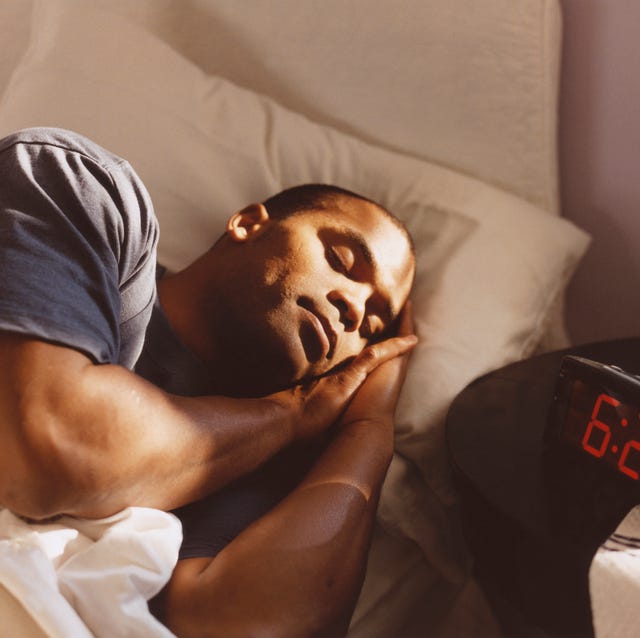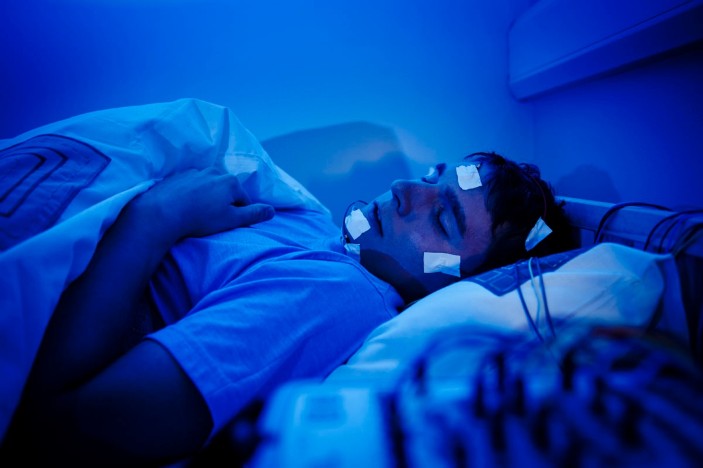Sleep Improvement Therapy - Boost Your Sleep Quality
Sleep Improvement Therapy - Boost Your Sleep Quality
Blog Article
Reliable Treatment Solutions for Handling Rest Disorders and Enhancing Relaxed Rest
In the realm of health care, the monitoring of sleep conditions and the mission for peaceful rest are critical parts of overall well-being. As we navigate the elaborate landscape of rest conditions and seek to boost our sleep experience, a much deeper understanding of these therapy solutions may hold the secret to unlocking a more rejuvenating and fulfilling corrective journey.
Cognitive Behavior Therapy for Sleep Problems (CBT-I)
Cognitive Behavioral Therapy for Insomnia (CBT-I) is an organized, evidence-based treatment strategy that focuses on dealing with the underlying factors adding to sleep disturbances. This sort of treatment aims to change actions and ideas that worsen sleep problems, ultimately promoting healthy sleep patterns. CBT-I usually entails a number of vital components, including cognitive treatment, rest constraint, stimulation control, and rest hygiene education and learning.
Cognitive therapy helps individuals identify and transform unfavorable idea patterns and ideas regarding rest that might be impeding their capacity to drop or remain asleep. Rest constraint includes limiting the quantity of time spent in bed to match the individual's actual rest duration, consequently raising rest effectiveness (sleep deprivation help). Stimulation control strategies aid establish a strong organization in between the bed and sleep by motivating people to visit bed only when drowsy and to avoid involving in stimulating tasks in bed
Additionally, rest health education focuses on establishing healthy and balanced rest habits, such as maintaining a regular rest schedule, producing a relaxing going to bed regimen, and enhancing the rest atmosphere. By addressing these aspects adequately, CBT-I provides an efficient non-pharmacological intervention for handling sleep problems and improving overall sleep high quality.
Sleep Hygiene Practices
Having established the structure of cognitive restructuring and behavioral alterations in dealing with sleeping disorders through Cognitive Behavioral Treatment for Sleeping Disorders (CBT-I), the emphasis currently moves towards checking out crucial Rest Health Practices for preserving optimum sleep top quality and general health.
Sleep health techniques encompass a variety of habits and environmental variables that can dramatically affect one's ability to go to sleep and remain asleep throughout the night. Consistent rest and wake times, developing a relaxing going to bed regimen, and maximizing the rest setting by maintaining it dark, silent, and cool are vital components of excellent rest health. Limiting exposure to screens before going to bed, preventing stimulants like caffeine near going to bed, and taking part in regular exercise throughout the day can likewise promote much better rest high quality.
Moreover, exercising relaxation strategies such as deep breathing workouts or reflection before bed can help relax the mind and prepare the body for sleep. By integrating these sleep hygiene practices into one's everyday routine, people can establish a healthy and balanced rest pattern that supports peaceful sleep and overall health.
Leisure Techniques and Mindfulness
Implementing relaxation strategies and mindfulness techniques can play an essential duty in cultivating a sense of calmness and advertising high quality sleep. natural insomnia remedies. These strategies aim to silent the mind, reduce stress and anxiety, and create an optimal setting for relaxed rest. One widely exercised method is deep breathing workouts, where individuals concentrate on slow, deep breaths to loosen up the body and mind. Dynamic muscle mass leisure involves tensing and afterwards launching each muscular tissue group, promoting physical relaxation. Additionally, directed imagery can assist move individuals to a relaxed place in their minds, assisting in stress and anxiety reduction and enhancing rest top quality.
Mindfulness methods, such as reflection and yoga exercise, are likewise effective in advertising leisure and boosting sleep. Mindfulness encourages individuals to remain existing in the moment, releasing fears concerning the past or future. By integrating these practices into a bedtime routine, individuals can indicate to their bodies that it is time to unwind and prepare for sleep. On the whole, integrating relaxation strategies and mindfulness methods can significantly add to managing rest disorders and enhancing general sleep high quality.

Medication Options for Rest Disorders
After checking out leisure methods and mindfulness methods as non-pharmacological treatments for improving sleep quality, it is necessary to consider medication choices for individuals with rest problems. In instances where lifestyle modifications and therapy do not supply adequate relief, medicine can be a valuable tool in managing rest disruptions.
Typically recommended medicines for rest conditions consist of benzodiazepines, non-benzodiazepine hypnotics, antidepressants, and melatonin receptor agonists. Benzodiazepines, such as diazepam, are sedatives that can help induce sleep, yet they are typically suggested for short-term usage as a result of the risk of dependancy. Non-benzodiazepine hypnotics like zolpidem are additionally made use of to treat sleeping disorders and have vitamin b insomnia a reduced danger of dependancy contrasted to benzodiazepines. Antidepressants, such as trazodone, can be useful for individuals with co-occurring anxiety and rest disruptions. Melatonin receptor agonists, like ramelteon, target the body's natural sleep-wake cycle and can be handy for controling rest patterns.
It is essential for individuals to speak with a doctor to identify one of the most appropriate medication option based upon their details sleep disorder and case my blog history.
Light Therapy for Circadian Rhythm Regulation
Light treatment, also known as photo-therapy, is a non-invasive therapy technique used to control circadian rhythms and enhance sleep-wake cycles. This treatment includes direct exposure to intense light that resembles natural sunshine, which helps to reset the body's body clock. By revealing individuals to specific wavelengths of light, usually in the early morning or evening relying on the desired impact, light treatment can successfully adjust the body clock to promote wakefulness during the day and boost peaceful sleep during the night.
Study has shown that light treatment can be especially beneficial for individuals with body clock disorders, such as postponed rest phase disorder or jet lag. It can also be useful for those experiencing seasonal affective disorder (SAD), a sort of clinical depression that normally happens during the winter season when all-natural light exposure is lowered. Light treatment is generally well-tolerated and can be utilized in combination with other therapy techniques for rest problems to maximize results and enhance general rest high quality.
Conclusion
Finally, efficient therapy services for handling sleep conditions and boosting restful sleep include Cognitive Behavior modification for Sleeping Disorders (CBT-I), sleep health techniques, leisure techniques and mindfulness, medication options, and light therapy for circadian rhythm law. These approaches can aid people enhance their sleep quality and total wellness. It is necessary to consult with a health care copyright to establish the most appropriate technique for attending to sleep issues.
As we navigate the intricate landscape of rest problems and look for to boost our rest experience, a deeper understanding of these therapy services may hold the key to opening a much more refreshing and fulfilling restorative trip.
Sleep limitation involves restricting the amount of time spent in bed to match the individual's actual rest duration, therefore increasing sleep performance. Regular sleep and wake times, creating a relaxing going to bed routine, and enhancing the sleep environment by maintaining it dark, quiet, and cool are vital parts of excellent sleep health. Light therapy is generally well-tolerated and can be used in combination with other therapy methods for rest conditions to maximize results and boost total sleep top quality.

Report this page